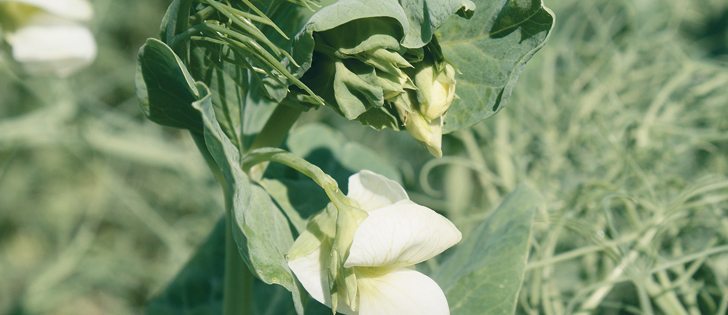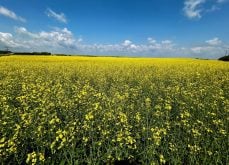Canterra Seeds signs 10 year deal, which could generate $100,000 per year in royalties
Canterra Seeds has signed a deal that gives it exclusive U.S. distribution rights for field pea varieties developed at the University of Sask-atchewan’s Crop Development Centre.
The Winnipeg-based seed company announced Jan. 6 that it had acquired the distribution rights in an open bid competition.
CDC’s yellow and green pea varieties will be sold in the United States primarily through Canterra’s American affiliate, Meridian Seeds.
The 10-year deal will take effect Sept. 1 and will include existing and future CDC varieties.
Read Also

Alberta crop diversification centres receive funding
$5.2 million of provincial funding pumped into crop diversity research centres
“This relationship was built on our strong track record, both with the CDC and with U.S. farmers,” said Canterra president David Hansen.
“We’ve established a robust distribution network in the U.S. that has served us well in marketing a wide range of crops, and have previously proven our expertise to the CDC by successfully marketing their chickpea varieties in the U.S., in addition to distributing many of their other crop varieties in Canada.”
The distribution deal will include CDC’s most popular pea varieties: CDC Patrick, CDC Golden and CDC Meadow.
The deal is expected to generate as much as $100,000 per year in royalties in a good year, which will flow back to the CDC to support existing breeding programs.
Kofi Agblor, managing director at the CDC, said the new agreement gives the university an opportunity to collect royalties on pea varieties that would eventually make their way across the U.S. border, with or without a distribution deal.
“The genetics will cross the border,” Agblor said. “What we’re trying to do is … manage the varieties and collect royalties that can be invested back into the program.”
Under an existing arrangement with Saskatchewan Pulse Growers, CDC’s new pea varieties will continue to be distributed and multiplied in Canada for two years before they are made available for distribution south of the border.
This arrangement gives pulse producers and pedigreed seed growers in Western Canada a two-year head-start on their American counterparts and allow Meridian a chance to assess the performance of new varieties and decide if they will be suitable for U.S. production.
Like Canterra in Canada, Meridian Seeds is a network of seed-grower shareholders and licensees. It has doubled in size over the past two years and is now represented by seed growers in 12 U.S. states.
Canterra owns 50 percent of Meridian and is also a managing partner.
Hansen said the U.S. market for dry peas has been growing rapidly over the past few years.
“It’s an expanding market,” he said.
“Particularly in the Midwest and even into the southwestern states … dry pea production has been increasing significantly over the past two or three years.… It seems to be working well for American growers in their rotations and I think agronomically, some of the varieties have been coming from the northern areas have been performing very well in the States.”
Contact brian.cross@producer.com
















